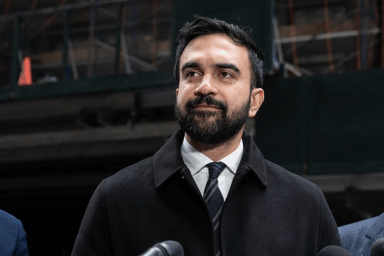Moral Hazard, Fed Style
How exactly did the Federal Reserve gain the emergency authority to loan more than $1 trillion of taxpayer money to the banks secretly and without oversight? The Washington Post explains today in a long investigative piece by Binyamin Appelbaum and Neil Irwin.
As it turns out, Sen. Chris Dodd slipped the necessary language into an FDIC reform bill that was passed the Senate on the day before Thanksgiving, 1991. The 1987 stock market crash and the ongoing savings and loan crisis were fresh on the senators’ minds.
Who gave Dodd and his colleagues the idea? Goldman Sachs and other Wall Street firms requested the insertion, according to the Post. Dodd, of course, has received large donations from Goldman Sachs, Citigroup, the now defunct Bear Stearns, AIG, and the other usual suspects during his long career.
The Wall Street firms, in turn, received their inspiration from their top lawyer—one who counts “virtually all of Wall Street as his client”— H. Rodgin Cohen.
The Post reports:
Rodgin Cohen, a partner at Sullivan & Cromwell, suggested to several of his clients the idea of modifying the 1932 law to allow lending to investment banks, according to people involved in the discussions. Cohen is a legendary figure on Wall Street, building a career as perhaps the preeminent legal adviser on banking mergers, in part through his command of the minutiae of federal regulations. . . .
On March 11, the Fed’s Board of Governors invoked the emergency-powers law for the first time since the Great Depression, allowing firms to swap their securities for Treasurys, preserving their ability to raise money without requiring them to sell the securities at large losses.
The Fed’s biggest concern: Invoking a law that could be used only in a financial crisis might deepen the fear in the markets. The answer: The Fed, in its press release announcing the facility on March 11, didn’t mention where the legal authority came from.
Cohen’s firm, Sullivan & Cromwell, is one of the DNC’s top fundraisers, pouring almost $250,000 into its coffers during the 2008 election cycle.
The Obama administration at one point seriously considered Cohen for deputy treasury secretary under Tim Geithner. Cohen, however, withdrew his nomination when a problem surfaced late in the vetting process. To this day, we don’t know what that issue was.
If Cohen had succeeded in winning the nomination, however, he likely wouldn’t have become an “agent of change.” Cohen boldly stated this month that Wall Street should return to business as usual:
Wall Street, after getting billions of taxpayer dollars, will emerge from the financial crisis looking much the same as before markets collapsed, said H. Rodgin Cohen, chairman of law firm Sullivan & Cromwell LLP.
“The system will look more like what preceded the current environment than many people seem to believe,” Cohen said yesterday at a panel discussion on the future of Wall Street sponsored by Bloomberg News in New York. “I am far from convinced there was something inherently wrong with the system.”
Plus ça change . . .


